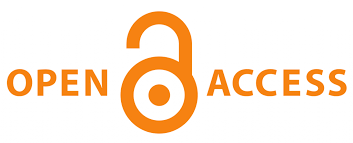Main approaches and features of the design of aircraft hydro-mechanical control systems
- Authors: Petrov P.V.1, Tselischev V.A.1, Kuderko D.A.2
-
Affiliations:
- Ufa University of Science and Technology
- R and D Center “Technodinamika”
- Issue: Vol 23, No 1 (2024)
- Pages: 67-79
- Section: AIRCRAFT AND SPACE ROCKET ENGINEERING
- URL: https://journals.ssau.ru/vestnik/article/view/27329
- DOI: https://doi.org/10.18287/2541-7533-2024-23-1-67-79
- ID: 27329
Cite item
Full Text
Abstract
The main purpose of the article is to identify the main approaches and define the concept when modeling the hydro-mechanical control systems of an aircraft. The advantages and importance of a computational experiment with the aid of a virtual test bed at the stage of constructive parametric debugging of the elements of complex hydraulic systems are emphasized. The characteristics obtained from the results of the computational experiment will allow us to determine the level of adequacy of the models and subsequently choose the most optimal design and operational parameters.
About the authors
P. V. Petrov
Ufa University of Science and Technology
Author for correspondence.
Email: pgl.petrov@mail.ru
ORCID iD: 0000-0001-7901-2853
Candidate of Science (Engineering), Associate Professor of the Department of Applied Hydromechanics
Russian FederationV. A. Tselischev
Ufa University of Science and Technology
Email: pgl.ugatu@mail.ru
Doctor of Science (Engineering), Professor, Head of Department of Applied Hydromechanics
Russian FederationD. A. Kuderko
R and D Center “Technodinamika”
Email: dm_kuderko@mail.ru
Candidate of Science (Engineering), Head Center
Russian FederationReferences
- Kuderko D.A., Tselischev V.A., Tselischev D.V. Prospects for development of flight control surfaces actuators of civil aircraft. PNRPU Aerospace Engineering Bulletin. 2021. No. 67. P. 70-84. (In Russ.). doi: 10.15593/2224-9982/2021.67.07
- Mozaryn J., Winnicki A., Suski D. Modeling of electro-hydraulic servo-drive for advanced control system design. Springer Proceedings in Mathematics & Statistics. 2022. V. 362. P. 183-191. doi: 10.1007/978-3-030-77306-9_16
- Kuznetsov V.E., Dinh Khanh N., Lukichev A.N., Filatov D.M. Hybrid steering system's Pid-based adaptive control. Proceedings of the 2021 IEEE Conference of Russian Young Researchers in Electrical and Electronic Engineering, ElConRus 2021 (January, 26-28, 2021, Moscow). doi: 10.1109/ElConRus51938.2021.9396303
- Gimadiev A.G., Kryuchkov A.N., Prokof'ev A.B. Avtomatika i regulirovanie aviatsionnykh dvigateley i energeticheskikh ustanovok [Automation and control of aircraft engines and power plants]. Part 1. Samara: Samara State Aerospace University Publ., 2002. 139 p.
- Popov D.N. Dinamika i regulirovanie gidro- i pnevmosistem [Dynamics and control of hydraulic and pneumatic systems]. Moscow: Mashinostroenie Publ., 1987. 464 p.
- Abbasov I.B. Computer modeling in the aerospace industry. Hoboken: Wiley-Scrivener, 2020. 282 p.
- Zadiraka V.K. Using reserves of computing optimization to solve complex problems. Cybernetics and Systems Analysis. 2019. V. 55, no. 1. P. 40-54. doi: 10.1007/s10559-019-00111-0
- Jin Z.-L., Zhou Q., Zhao W.-Z. Dynamics modeling and performance analysis for electro hydraulic braking system. Beijing Ligong Daxue Xuebao. 2018. V. 38, Iss. 7. P. 117-122. doi: 10.15918/j.tbit1001-0645.2018.1.026
- Petrov P.V., Tselishchev V.A. Osnovy algoritmicheskogo modelirovaniya nelineynykh gidromekhanicheskikh ustroystv: ucheb. posobie [Fundamentals of algorithmic modeling of nonlinear hydro-mechanical devices: study guide]. Ufa: Ufa State Aviation Technical University Publ., 2012. 136 p.
- Petrov P.V., Chernov D.D. Necessity of research of nonlinear hydro-mechanical systems in generalized parameters. Handbook. An Engineering Journal. 2019. No. 4 (265). P. 28-33. (In Russ.). doi: 10.14489/hb.2019.04.pp.028-033
- Mashkov M.A., Matrosov A.V., Sunarchin R.A. Obobshchennye kharakteristiki elektrogidravlicheskogo sledyashchego privoda. Materialy Nauchnogo Foruma s Mezhdunarodnym Uchastiem «Nedelya Nauki SPbPU». Institut Energetiki I Transportnykh Sistem (November 30 - December 05, 2015, Saint-Petersburg). Part 1. St. Petersburg: Peter the Great St. Petersburg Polytechnic University Publ., 2015. P. 91-93. (In Russ.)
- Gimranov E.G., Sunarchin R.A., Khasanova L.M. Generalized dynamic characteristics of mathematical models of hydraulic units. Bulletin of Perm State Technical University. Aerospace Engineering. 2000. No. 5. P. 99-106. (In Russ.)
- Gareev A., Gimadiev A., Popelnyuk I., Stadnik D., Sverbilov V. Simulation of electro-hydraulic systems taking into account typical faults. BATH/ASME 2020 Symposium on Fluid Power and Motion Control, FPMC 2020 (September, 9-11, 2020, Virtual, Online). doi: 10.1115/FPMC2020-2792
- Petrov P.V., Tselishchev V.A. Osnovy avtomatizirovannogo proektirovaniya gidromekhanicheskikh ustroystv [Fundamentals of computer-aided design of hydro-mechanical devices]. Ufa: RIK UGATU Publ., 2019. 241 p.
- Kotkin G.L., Popov L.K., Cherkasskiy V.S. Komp'yuternoe modelirovanie fizicheskikh protsessov s ispol'zovaniem MATLAB: ucheb. posobie [Computer modeling of physical processes using MATLAB: study guide]. Moscow: Yurayt Publ., 2020. 202 p.
- Petrov P.V., Tselischev V.A. Numerical study of SAR CCD for steady-state and transient modes. PNRPU Aerospace Engineering Bulletin. 2019. No. 57. P. 7-16. (In Russ.). doi: 10.15593/2224-9982/2019.57.01
Supplementary files





















